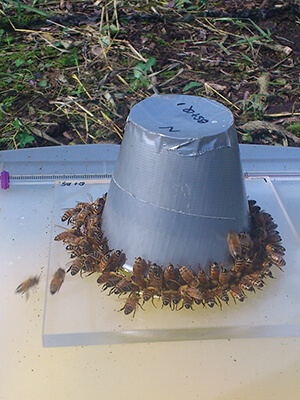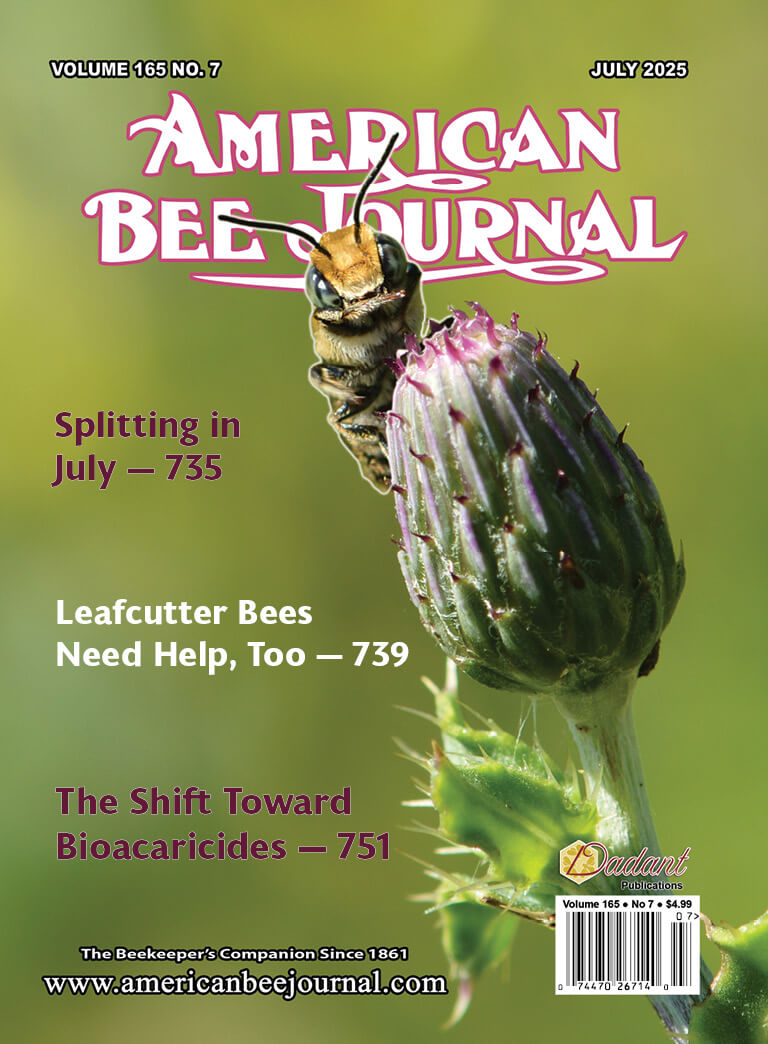
If you crave tea or coffee in the morning, you’ve experienced how plant chemicals (e.g. caffeine) influence the choices you make. And this can be good! There are plenty of studies showing that a cup or two of coffee per day can be good for your health.
But there are also synthetic chemicals that can influence your choices. Do you drink diet soda? Those artificial sweeteners are likely what you’re craving, even though they aren’t making you healthier once you consume them.
What does this have to do with bees? Well, it turns out that chemicals also impact how bees make choices. Sometimes they choose well and consume things that are good for them. But sometimes bees choose to eat things that are bad for them, such as pesticide-contaminated nectar. This is the topic of our fourth “Notes from the Lab”, where we highlight “Behavioral responses of honey bees (Apis mellifera) to natural and synthetic xenobiotics in food”, written by Ling-Hsiu Liao and colleagues and published in the journal Scientific Reports [7:15924 (2017)].
For their study, the authors conducted several simple but elegant choice tests in a flight cage (basically just a long tent) that contained a colony of honey bees in the middle and sugar feeders on both ends. One of the feeders always had ordinary sugar water. The other feeder had sugar water plus one of nine plant chemicals (e.g. caffeine) that can be found naturally in floral nectar, or one of five pesticides (e.g. chlorothalonil) that unfortunately can also sometimes be found unnaturally in nectar.
There were two main results. First, bees were especially attracted to sugar water with quercetin, a natural plant chemical that’s present in nearly all pollen, many nectars, and also propolis in many parts of the world. Second, bees avoided sugar water containing one fungicide (prochloraz) but were actually attracted to sugar water containing one fungicide (chlorothalonil) and one herbicide (glyphosate).
Wait… the bees actually preferred to drink sugar water contaminated with pesticides? Yes, you read that correctly. And this isn’t the first time a study has shown such a preference by bees. A couple years ago, researchers in England found that bees preferred to drink sugar water contaminated with neonicotinoid insecticides. Since then, there’s been a lot of talk about why bees might prefer food laced with pesticides. Do they like the taste? Do they get a “buzz” from the nicotine-like neonicotinoids similar to a human smoking a cigarette? Or perhaps it’s a bit more complicated and the colony collectively makes the choice after foragers return and receiver bees taste and evaluate the food via trophallaxis.
So, if the bees prefer to consume chlorothalonil and glyphosate, is it bad for them? Chlorothalonil and glyphosate are not acutely toxic to bees. But that doesn’t mean they’re harmless. Let’s take the curious case of chlorothalonil, for example.
Chlrorothalonil is often the major contaminant in honey bee hives – which may be partially explained by Liao and colleague’s findings regarding bees’ preference for this chemical. Chlorothalonil has been shown to increase susceptibility to Nosema and synergize with some insecticides and miticides, making them five times more toxic to honey bee larvae. A recent study from our lab found that chlorothalonil and other fungicides were the best predictor of Nosema prevalence and range contractions in declining US bumble bees.
These results suggest that perhaps more research should be ….


